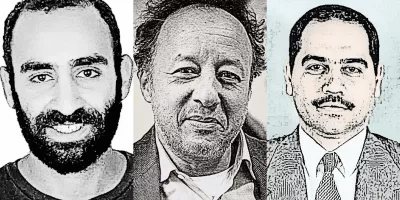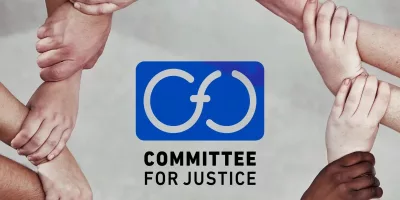Tuesday, 6 April 2017
Geneva
Report: In Egypt “No Line to The Horizon to End Systematic Oppression”
A Detailed Analytical Study of 50 Military Trials which their Ligation Procedures Have Completed
The Committee for Justice has released its report “No Line to The Horizon to End Systematic Oppression” today in Arabic and the English version will be released soon. This report is a production of a detailed analytical study of 50 military trials of civilians in Egypt which their ligation procedures have completed internally. The researchers who worked on this report have worked intensively during the past 3 months on studying and analyzing these 50 trials. They got all the trials documents from the detainees’ lawyers and verified all the included data and procedures. The researchers worked with the best standards to make this study achieve its aims. The CFJ has talked previously about this report in its side event which was held on 20 March ’17 in the Human Rights Council in Geneva during the 34th OHCHR session (link) .
The CFJ aims through this report to present a clear picture of the violations against detainees in Egypt, and reasons that led to more than 10 thousand civilian detainees getting deprived of their freedom, as a result to verdicts issued against them by military courts around the country although they are civilians.
The report sheds light on how the successive authorities in Egypt have legitimized military trials of civilians post the January 25,2011 revolution, and how they integrated them into the justice system compared to pre-revolution, when it was an exception. Civil society organizations, law professionals, and activists have continued their efforts, and used diverse means to try to stop military trials for civilians.
This report is distinguished by its verified information as it is based on all the cases’ documents which the researchers got by the help of the lawyers who defend those civilians. You can find attached the database which this report is present in(link) .
The report is built on a case study of 50 military court cases, in which 485 civilians faced military trials during the period of June 2013 till December 2016. The report shows how these civilians were arbitrarily deprived of their freedom and how several of their fundamental rights were violated, including their right to a fair trial.
The report also explains the root reasons that led to have civilians judged by military courts, as a result to gradual legislative and legal reforms giving overbroad jurisdiction to the military court system. The Committee for Justice views this current situation as engineered by the Egyptian regime.
The report presents 50 cases where civilians faced military trials and the litigation procedures has completed internally (there is no chance for re-trial). The courts did not respect the fundamental principles of independence and impartiality but were used as a tool for intimidation and oppression. The lack of independence of the military court system is clearly demonstrated by the fact that it is subordinated to the jurisdiction of the ministry of defence.
The report demonstrates that the statutory legislations concerning the prosecution of civilians impeded their lawyers of any appeal in front of the Supreme Constitutional Court. Indeed, hundreds of requests were made to denounce the laws regulating military trials of civilians to the Supreme Constitutional Court, because void, unconstitutional, and violating the international law and the right to a fair trial and yet, these requests were all rejected.
Our methodology for this report is established over several parts:
First: Watching and documentation, by following up on the cases under study. The recurring violations of the basic right for a fair trial by more than one military court is an indication that the different military courts use an identical and deliberate policy.
Second: Legal and legislative analysis of the frameworks regulating military trials of civilians in Egypt. We present legal criticism for these frameworks, considering the already acknowledged regulations and laws.
Third: Demonstration of the most significant violations that took place during court sessions and investigation of procedures, according to the study of the documents of these cases.
Accordingly, the report was divided into two sections. The first section tackles the local legal framework, based on which the legislative and legal environment was established to try civilians according to the code of military justice in Egypt.
The second section demonstrates the legal nature of the court and military judge, and looks in a more detailed manner on the way judges are appointed, and how courts are established, and how laws regulating this process are drafted. These two sections aim at pointing out the level of lack of independence, of jurisdiction and impartiality, of the judicial military system which are the primary pillars of justice.
This report is rich in important statistical information which the researchers have worked on very carefully (you can find attached these statistics infographics). The analytical statistics shows that the number of convicts who were included in this study in the Canal provinces is 202 persons in 12 cases compared to 8 persons in one case in the border provinces. And it also shows the number of persons who were convicted by the law of facilities protection is 458 from 485 while the number of underage convicts is 16. And 274 persons were sentenced in absentia while 174 persons were sentenced at their presence.
At the end of this report, The Committee for Justice concluded some recommendations that should be implemented immediately to stop violations and crimes that civilians are victims of by being trailed by military trials in Egypt. These recommendations are as follows:





